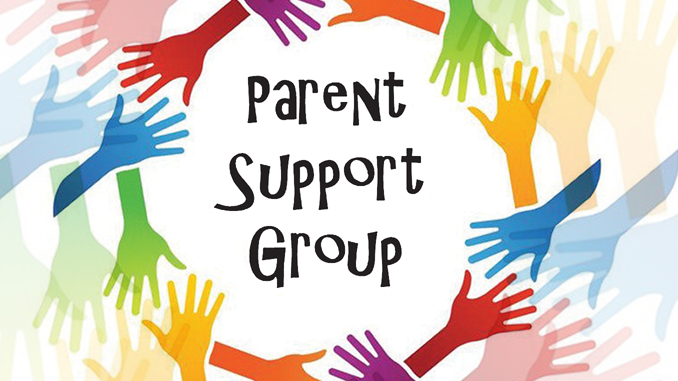Co-Parenting Communication: Building a Positive and Effective Dialogue
admin February 17, 2025
Table of Contents
ToggleWhy Effective Communication Is Crucial in Co-Parenting
When parents are no longer together romantically, communication can become more challenging. However, when co-parents communicate well, it benefits everyone involved—especially the child. Here’s why communication is key to successful co-parenting:
Consistency for the Child: Clear communication helps create consistency in the child’s routine, discipline, and emotional support, regardless of which parent they’re with. Consistency is essential for a child’s sense of security and well-being.
Minimizing Conflict: Misunderstandings or poor communication can lead to unnecessary conflict, which can affect the child and increase stress for both parents. Clear communication helps avoid this and fosters a more peaceful co-parenting relationship.
Effective Decision-Making: Co-parents must make decisions together, whether it’s about schooling, medical care, or extracurricular activities. Open dialogue ensures that both parents are on the same page when it comes to important decisions.
Building Trust: Healthy communication builds trust, and trust between co-parents is critical. Trust allows both parents to feel comfortable with shared parenting responsibilities and decisions, which ultimately benefits the child.
Positive Role Modeling: Co-parents who communicate respectfully and cooperatively provide a positive example for their child, teaching them valuable life skills such as problem-solving, conflict resolution, and respect.
Tips for Effective Co-Parenting Communication
Here are several practical tips to help improve communication between co-parents and make the parentings.co.uk experience more manageable and successful.
1. Focus on the Child’s Best Interests
When communicating with your co-parent, always keep the focus on what is best for the child. Emotional conflicts or disagreements from the past should not overshadow your role as a team to raise your child together.
How to do this:
- Keep the tone neutral and avoid emotional language that could lead to conflict.
- Remind each other of the shared goal: to provide your child with a loving, stable, and supportive environment.
- When discussing an issue, always ask yourself: “How does this decision benefit my child?”
2. Use Clear and Direct Communication
Being clear and direct is essential in any co-parenting conversation. Avoid vague language or leaving things open to interpretation. Make sure that your communication is straightforward, concise, and easily understood.
How to do this:
- Be specific about requests or plans. Instead of saying, “Can you take care of the child’s activities?”, specify, “Can you pick up Jamie from soccer practice on Tuesday at 4:30 PM?”
- When discussing disagreements, be direct and address the issue rather than bringing up unrelated problems or grievances.
3. Choose the Right Medium for Communication
While face-to-face communication may be ideal, it’s not always practical or possible. The method of communication can make a significant difference. Choose the best medium based on the situation to ensure clarity and prevent misunderstandings.
How to do this:
- Text messages can be useful for quick updates or questions that don’t require a lengthy response. They’re also helpful for non-urgent communications.
- Emails are great for more detailed discussions or keeping track of important information over time.
- Phone calls are ideal for more urgent matters or when you need to discuss an important issue in real-time.
- Co-parenting apps like OurFamilyWizard or Cozi help centralize communication, allowing both parents to easily access schedules, messages, and shared tasks.
4. Stay Calm and Respectful
Emotions can run high, especially when dealing with disagreements or past issues. However, it’s crucial to remain calm and respectful in all forms of communication. If either parent feels disrespected, it can lead to defensiveness, which can hinder productive dialogue.
How to do this:
- Take a deep breath and step away from the conversation if you feel frustrated or upset. You can revisit it when you’re calm.
- Use polite and respectful language, even if you disagree on something. For example, instead of saying “You never help with the kids!” try “I’d appreciate more help with the kids this week, can we figure out a plan?”
- Avoid raising your voice, using insults, or speaking in a way that is intended to hurt the other parent. Remember, the goal is to resolve issues—not escalate conflict.
5. Listen Actively
Active listening is just as important as speaking in effective communication. Listening shows that you respect your co-parent’s perspective and creates space for mutual understanding. It’s not just about waiting for your turn to speak; it’s about truly hearing what the other person is saying.
How to do this:
- Focus on what your co-parent is saying, without interrupting or forming responses in your head while they speak.
- Reflect back what you’ve heard to ensure understanding. For example, “I hear you’re saying you’d like to have the kids more on weekends, is that correct?”
- Acknowledge your co-parent’s feelings. You don’t always need to agree, but it’s important to show empathy.
6. Keep Communication Child-Centered
Remember that your communication should always be focused on what is in the best interest of the child, not on personal grievances or past issues. When both parents are centered on the child’s needs, it minimizes conflict and keeps the conversation productive.
How to do this:
- Frame discussions in terms of the child’s well-being. For example, instead of saying, “I don’t agree with your parenting style,” try, “I think we should discuss a consistent bedtime routine for the kids to help with their sleep schedule.”
- Keep conversations focused on the child’s current needs, such as schooling, health, and activities, instead of delving into emotional topics from the past.
7. Avoid Using the Child as a Messenger
Never use your child as a messenger between you and your co-parent. This can put undue stress on the child and place them in an uncomfortable position. Children should not feel like they are the go-between for adult conversations.
How to do this:
- Always communicate directly with your co-parent about important matters instead of passing messages through the child.
- If the child mentions something they overheard or are confused about, clarify it in a calm, private conversation with your co-parent—not through the child.
8. Set Boundaries and Respect Them
Clear boundaries help ensure that communication remains respectful and functional. By setting and respecting boundaries, both parents can communicate effectively without causing emotional strain.
How to do this:
- Set limits on the frequency and type of communication. For example, you may agree to only discuss child-related matters during certain hours or via specific channels (like emails for important updates).
- Respect each other’s time. If your co-parent has asked for space or isn’t available at a certain time, honor that request.
9. Don’t Engage in Arguments in Front of the Child
While disagreements are inevitable, avoid having arguments in front of the child. Seeing their parents argue can cause confusion, stress, and anxiety, which can affect the child’s emotional well-being.
How to do this:
- If an issue arises, suggest postponing the conversation for a later time when the child is not present.
- Have private discussions away from the child to resolve conflict or disagreement.
10. Seek Professional Support If Needed
Co-parenting can be complex, especially when emotions run high or communication becomes strained. If you find it challenging to communicate effectively or resolve issues, consider seeking the help of a mediator or therapist. Professional support can guide you through difficult conversations and offer strategies for healthier communication.
How to do this:
- Schedule co-parenting counseling to improve communication and address underlying issues.
- Work with a therapist individually if needed to process emotions or gain tools for better communication.
Conclusion
Effective communication is the foundation of successful co-parenting. By being clear, respectful, and child-focused, both parents can work together to create a stable and supportive environment for their child. Although co-parenting can be challenging, practicing these communication tips will help reduce conflict, build trust, and ensure that your child’s needs are prioritized. By fostering healthy dialogue, you not only benefit your child but also improve your own co-parenting experience.





